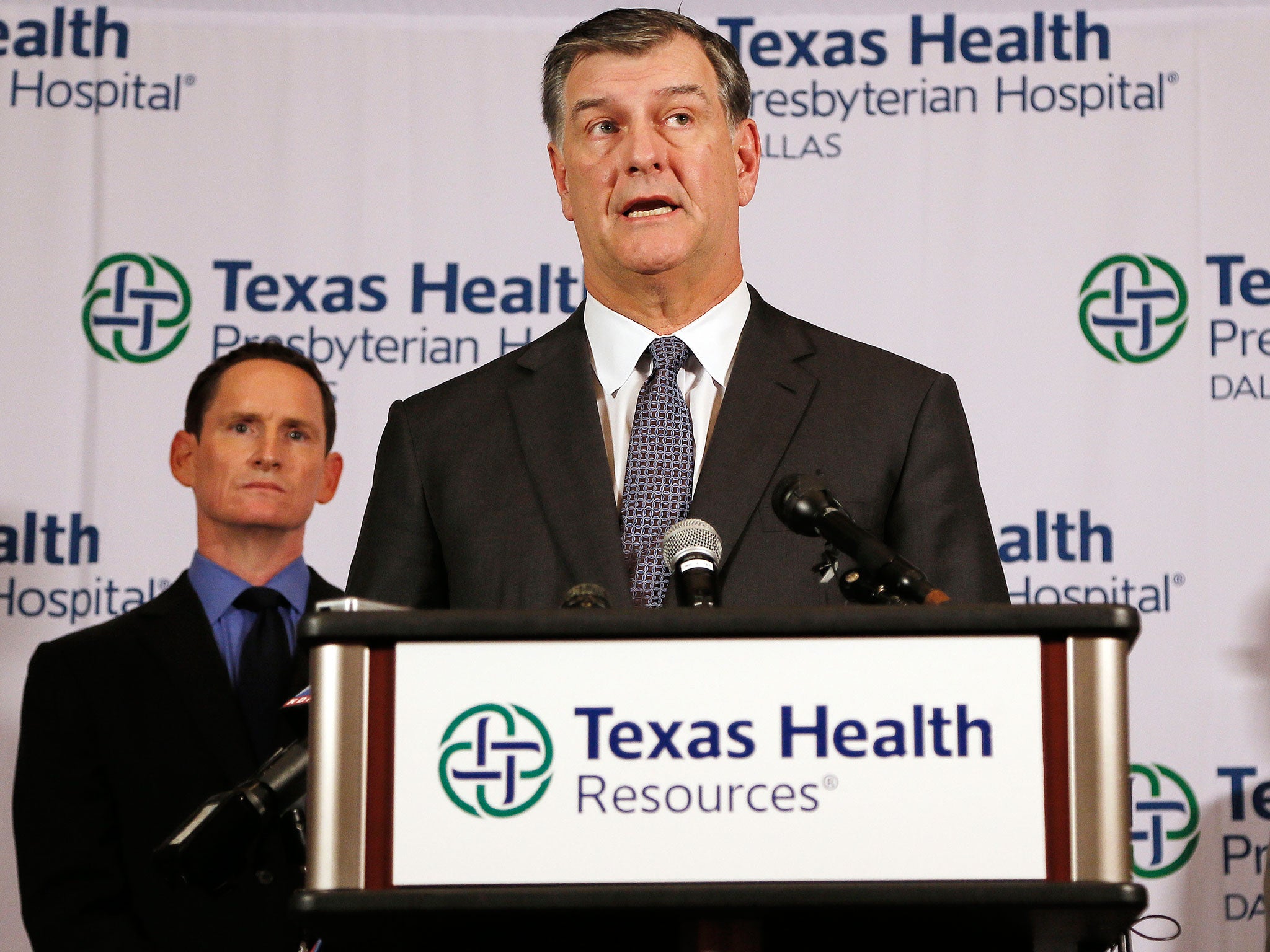Ebola UK: NHS 111 operators to monitor callers for symptoms
Jeremy Hunt says UK has robust system to cope with virus, as universities go on alert for West African students

Calls to the NHS’s non-emergency 111 phone line are to be screened for possible Ebola sufferers, the Health Secretary, Jeremy Hunt, has said.
Anyone contacting the service to discuss possible symptoms of the disease will be asked about their recent travel history to see if they have been to West Africa.
The announcement came as Boris Johnson, the Mayor of London, said he had “no doubt” that the virus would come to the UK at some point.
Universities are preparing for the arrival of 20,000 students from West Africa as the new academic year begins, amid fears that they could face a backlash. Staff are on high alert, with plans already in place to monitor the highest-risk students for up to three weeks. Cleaners have been told to look out for symptoms such as signs of blood or vomit in students’ rooms, as well as being warned of the infection risks of contact with bodily fluids.
Universities also cautioned against any discrimination, pointing out that the risks were minimal. Of the 20,000 West African students, about 17,000 are from Nigeria, where the outbreak is said to have been contained.
See the Ebola outbreak mapped
Show all 7Mr Hunt said the UK had “robust and well-tested systems for dealing with any imported case of Ebola”, but added: “We keep the need for further measures under review and will never be complacent – and so I asked for additional steps to be taken by NHS 111. Now all call handlers on the NHS 111 service are asking anyone reporting potential symptoms of Ebola, such as respiratory problems, high temperatures, or diarrhoea and vomiting, about their recent travel history, so appropriate help can be given to people who might be at higher risk of having come into contact with the virus.”
He said: “The NHS and Public Health England are well prepared for Ebola, and I am determined to make sure that we continue to do everything we can to protect the public, based on the best medical advice.”
Mr Johnson told BBC1’s Andrew Marr Show: “I have little doubt, that eventually there will be a case of Ebola in this country and probably in this city.” He said airport screening was a “far-from-perfect solution” because “you can’t blood test everybody coming into the country”.
It emerged on Sunday that a Texas hospital worker who helped care for the Ebola victim Thomas Duncan, who died on 8 October after catching the virus in Liberia, has become the second person to be diagnosed in the US.
The medical worker was in isolation in a stable condition last night, when it was formally confirmed that she had Ebola.
Dr Thomas Frieden, the head of the Centres For Disease Control and Prevention, said the CDC was “deeply concerned” by the new case.
The worker, believed to be a nurse, was expected to follow a strict protocol of personal protection, including wearing gloves, mask and a shield when working close to the patient. The only explanation for her becoming infected, Dr Frieden suggested, was that the protocol was not properly followed.
“If this individual was exposed, which they were, it is possible that other individuals were exposed,” he said, adding that 48 other people were being monitored.
In Massachusetts, there were reports that a patient who had recently been to West Africa and was showing signs of the disease had been placed in isolation. The Harvard Vanguard Medical Centre was also evacuated.
Subscribe to Independent Premium to bookmark this article
Want to bookmark your favourite articles and stories to read or reference later? Start your Independent Premium subscription today.

Join our commenting forum
Join thought-provoking conversations, follow other Independent readers and see their replies